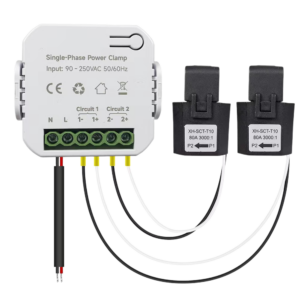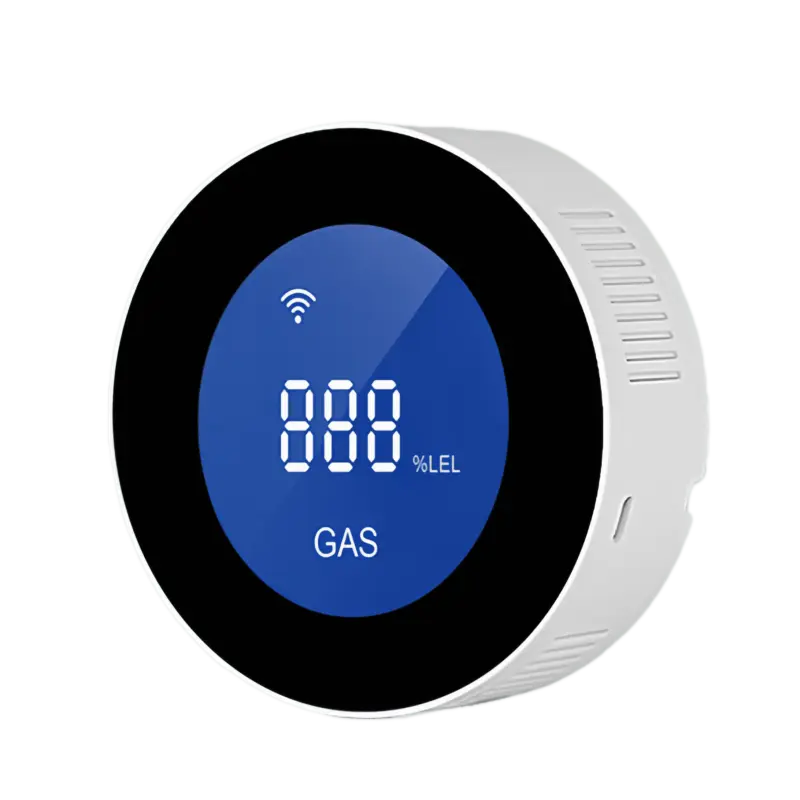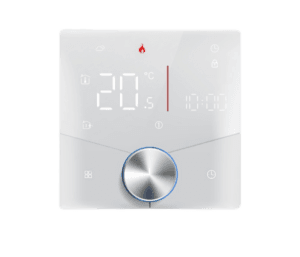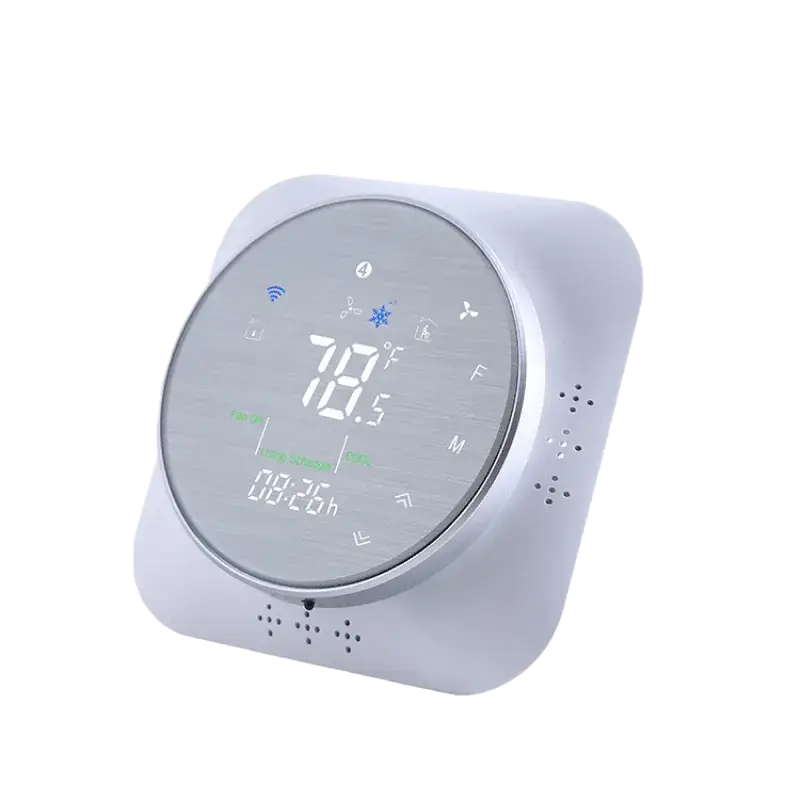Energy costs have become a growing concern for households worldwide. With rising utility prices and an increased focus on sustainability, families are seeking smarter ways to manage their energy usage. Enter the smart meter: a revolutionary device that empowers consumers to monitor and optimize energy consumption like never before. In this article, we delve into five ways smart meters help households save on energy costs, shedding light on their features, benefits, and real-world applications.
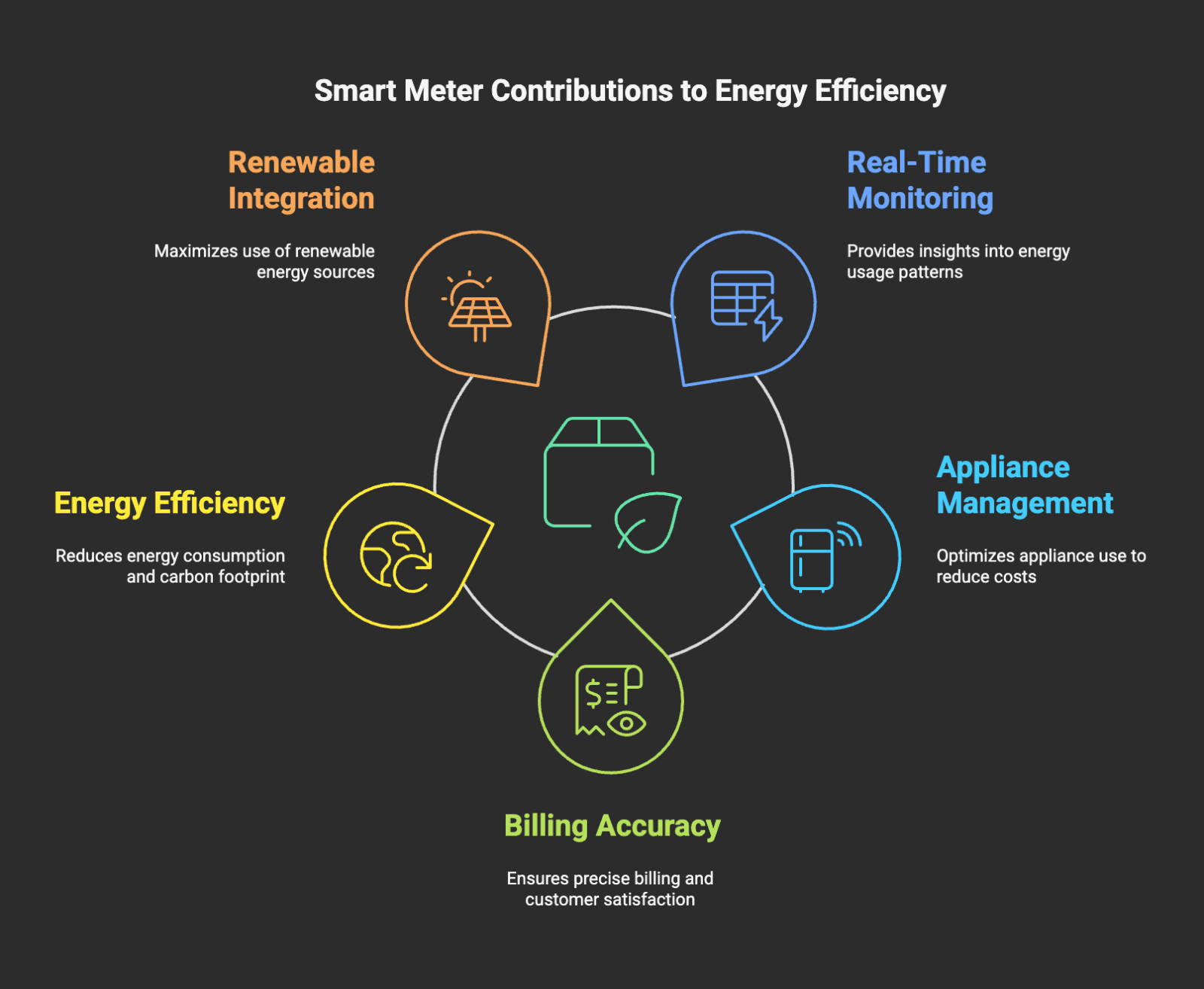
1. Real-Time Energy Usage Monitoring
Smart meters provide households with real-time insights into their energy consumption. Unlike traditional meters that only track cumulative usage, smart meters break down energy use by hour, day, or even by appliance. This granular data allows homeowners to understand exactly when and where their energy is being used.
Example in Practice:
Imagine a household noticing a spike in energy usage every evening. By analyzing smart meter data, they might discover the culprit is an outdated appliance, such as an inefficient refrigerator or an electric water heater running during peak hours. Armed with this information, they can take immediate action to replace or adjust these appliances, reducing energy waste.
Key Benefit:
Real-time monitoring ensures that energy consumption patterns are visible to the consumer, enabling timely interventions and long-term savings.
2. Smarter Appliance Management
Smart meters are often integrated with home automation systems, enabling smarter appliance management. These systems can automate when appliances run, ensuring they operate during off-peak hours when electricity rates are lower.
How It Works:
- Time-of-Use Optimization: Many utilities charge different rates for electricity depending on the time of day. Smart meters track these time-of-use rates and sync with home devices to avoid peak pricing.
- Load Shifting: Appliances like dishwashers, washing machines, or EV chargers can be programmed to run during off-peak times, minimizing costs without sacrificing convenience.
Case Study:
A family with an electric vehicle (EV) uses their smart meter data to determine the cheapest charging times. By scheduling the EV to charge during off-peak hours, they cut their monthly electricity bill by 15%.
3. Enhanced Billing Accuracy
Traditional energy billing systems often rely on estimated usage, which can lead to discrepancies and unexpected charges. Smart meters eliminate this issue by providing precise, real-time data to energy providers.
Advantages:
- No More Bill Shocks: Accurate readings mean households are only billed for the energy they actually use.
- Detailed Billing Statements: Many smart meter platforms offer households a breakdown of their energy costs by time and category, helping them pinpoint areas for improvement.
Example:
In a survey conducted by an energy provider, customers with smart meters reported 30% higher satisfaction rates due to the transparency of their billing systems compared to those relying on traditional meters.
4. Empowering Energy Efficiency
Smart meters not only help households save money but also encourage energy efficiency, which benefits the environment. By identifying wasteful habits and optimizing energy use, households reduce their overall carbon footprint.
Steps to Improve Efficiency:
- Behavioral Adjustments: Real-time data reveals energy-heavy habits, such as leaving lights on or using heating systems unnecessarily.
- Optimized Appliance Settings: Smart meters allow households to experiment with appliance settings to find the most energy-efficient configurations.
Real-World Impact:
A pilot program in the UK found that households using smart meters reduced their annual energy consumption by 12%, contributing significantly to national energy savings targets.
5. Integration with Renewable Energy Sources
As renewable energy adoption grows, smart meters are playing a crucial role in optimizing energy flow. They are particularly beneficial for households that use solar panels or wind turbines.
Features for Renewable Integration:
- Net Metering: Smart meters measure energy production and consumption, enabling households to sell excess energy back to the grid.
- Dynamic Load Balancing: By monitoring renewable energy output, smart meters can adjust household energy consumption in real time to maximize savings.
Example:
A household with rooftop solar panels uses a smart meter to track energy generation throughout the day. During peak sunlight hours, the household stores surplus energy in a home battery system, using it during the evening when electricity prices are higher.
Advanced Features of Smart Meters
While the primary functions of smart meters focus on monitoring and managing energy, modern devices come equipped with advanced features that further amplify their benefits.

Remote Energy Management:
Many smart meters allow users to control their home’s energy usage remotely via mobile apps. This is especially useful for shutting off appliances that were accidentally left on or for pre-cooling a home during the summer.
Predictive Energy Analytics:
Using historical data and machine learning algorithms, some smart meters can predict future energy consumption trends. This helps households budget better and anticipate seasonal spikes in usage.
Alerts for Anomalies:
Smart meters can send notifications when unusual patterns are detected. For instance, a sudden increase in consumption could indicate a malfunctioning appliance or energy theft.
Overcoming Common Misconceptions
Despite their benefits, smart meters are sometimes misunderstood. Let’s address a few common misconceptions:
- Privacy Concerns: Smart meters collect data on energy usage, not personal information. The data is encrypted and used solely for billing and efficiency purposes.
- Health Risks: The radio frequencies emitted by smart meters are minimal and well within regulatory safety limits, posing no health risks.
- Complexity: Many people believe smart meters are difficult to use, but most devices come with intuitive apps and interfaces designed for all users.
Tips for Maximizing Smart Meter Benefits
- Understand Time-of-Use Rates: Learn the pricing structure in your area and adjust your energy usage accordingly.
- Leverage Mobile Apps: Use the companion apps to track and manage your consumption in real time.
- Combine with Energy-Efficient Appliances: Smart meters work best when paired with modern, energy-efficient devices.
- Participate in Utility Programs: Many energy providers offer discounts or rebates for households using smart meters.
- Monitor Regularly: Regularly reviewing your energy data helps identify areas for further savings.
The Future of Smart Meters
As technology evolves, the capabilities of smart meters will continue to expand. Upcoming advancements include:
- AI Integration: Advanced analytics will make energy optimization even more precise.
- Smart Grid Interoperability: Enhanced communication with utility providers will allow for faster responses to outages and better load balancing.
- IoT Ecosystems: Seamless integration with other smart home devices will create a unified and highly efficient energy management system.
Smart meters are transforming how households consume and manage energy. From real-time monitoring to renewable energy integration, these devices are not just tools for saving money but also essential components of a sustainable future. By embracing smart meter technology, households can take a proactive approach to energy management, ensuring long-term savings and environmental benefits.
Whether you’re looking to cut costs, reduce your carbon footprint, or simply understand your energy usage better, a smart meter is a powerful ally in achieving your goals.

